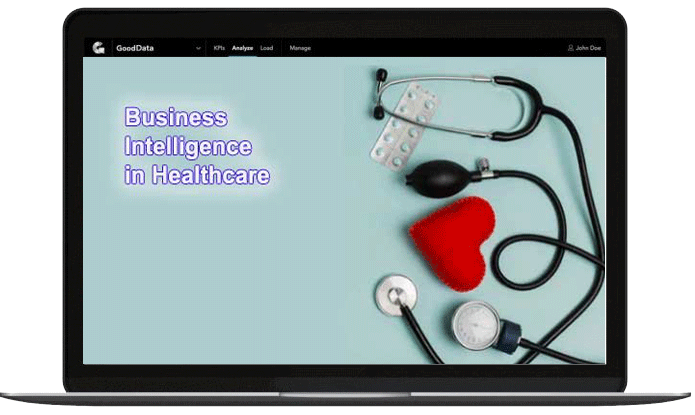Business Intelligence in Healthcare: Improving Patient Care

Business Intelligence (BI) plays a crucial role in improving patient care in the healthcare industry. It empowers healthcare providers, administrators, and decision-makers with valuable insights from data, ultimately leading to more efficient, cost-effective, and patient-centered care. Here’s how BI is transforming healthcare:
1. Data Integration:
BI tools aggregate data from various sources within healthcare organizations, such as electronic health records (EHRs), billing systems, patient surveys, and medical devices. This comprehensive view of data allows for a holistic understanding of patients’ health and treatment history.
2. Predictive Analytics:
BI leverages predictive analytics to forecast patient outcomes and identify potential health risks. By analyzing historical patient data, healthcare providers can proactively intervene to prevent complications, reducing hospital readmissions and improving overall patient well-being.
3. Population Health Management:
BI assists in population health management by segmenting patient populations based on criteria such as age, chronic conditions, or risk factors. This segmentation enables healthcare organizations to tailor interventions, preventative measures, and outreach programs to specific patient groups.
4. Real-time Monitoring:
BI dashboards and real-time analytics provide healthcare professionals with immediate insights into patient vital signs, medication adherence, and treatment progress. This allows for prompt responses to critical situations and reduces the risk of adverse events.
5. Resource Optimization:
BI helps healthcare facilities optimize resource allocation, including staff scheduling, equipment utilization, and inventory management. This efficiency ensures that patients receive timely care and minimizes operational costs.
6. Cost Reduction:
Through data-driven decision-making, BI identifies cost-saving opportunities, such as reducing unnecessary tests or treatments, streamlining administrative processes, and minimizing billing errors. This, in turn, helps lower healthcare costs for both providers and patients.
7. Patient Engagement:
BI tools support patient engagement efforts by providing patients with access to their own health data and enabling them to actively participate in their care. Engaged patients are more likely to follow treatment plans and make healthier lifestyle choices.
8. Quality Improvement:
Healthcare organizations use BI to monitor and measure key performance indicators (KPIs) related to patient care, such as readmission rates, infection rates, and patient satisfaction scores. This data-driven approach allows for continuous quality improvement initiatives.
9. Compliance and Reporting:
BI aids in compliance with regulatory requirements and reporting standards. It ensures that healthcare providers meet documentation and reporting obligations, reducing the risk of penalties and legal issues.
10. Research and Innovation:
BI supports medical research and innovation by providing access to extensive patient data for clinical trials and studies. This accelerates the development of new treatments and therapies, ultimately benefiting patients.
In summary, Business Intelligence is a transformative force in healthcare, offering a data-driven approach to improving patient care, reducing costs, and enhancing overall healthcare outcomes. As technology and data analytics continue to advance, BI will play an increasingly vital role in the healthcare ecosystem, ultimately leading to better health and well-being for patients worldwide.